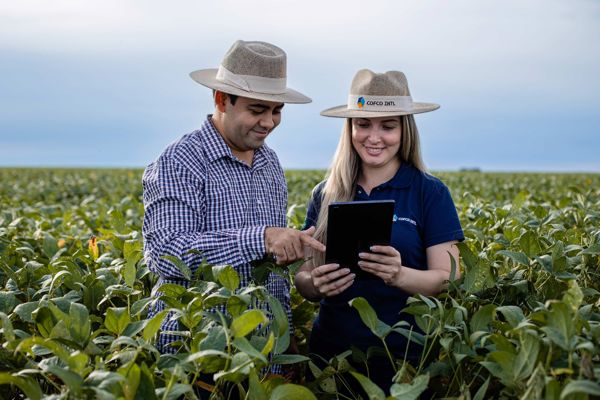
Partnering to reduce the carbon footprint of coffee
COFCO International is collaborating with farmers in Brazil’s environmentally sensitive and highly productive Cerrado Mineiro region to measure and reduce carbon emissions from coffee production, as demand for coffee certified as carbon neutral grows.
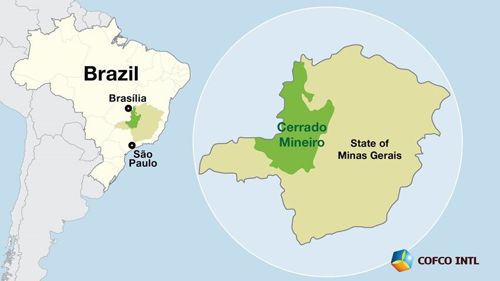
With the majority of coffee’s carbon footprint arising at field level, focusing efforts on farming offers the greatest opportunity for impact. In particular, it will help the company to fulfil its sustainability goals and customer needs, while respecting global climate commitments, and strengthening its position in the certified coffee market. And the journey begins in Brazil, one of COFCO International’s most important coffee growing countries, with 15% of its volume in Brazil sourced from the area.
Partnering with sustainable farming expert Produzindo Certo (Producing Right), COFCO International’s teams have worked with six coffee producers of the monteCCer cooperative to analyse social and environmental risks on their farms, with an in-depth focus on measuring carbon emissions. This builds on the company’s work to produce more sustainable coffee and is part of a broader push to develop a comprehensive process to measure and independently verify the sustainability performance of coffee farms. Importantly, COFCO International is committed to achieving this in a practical way that creates value for producers.
Understanding the need for sustainable coffee
Coffee is one of the world’s most popular drinks, with demand set to rise by 25% by 2030. Yet it’s also one of the most vulnerable commodities to the climate crisis, with nearly all the world’s coffee growing areas experiencing increases in weather variability, leading to new areas of land being deforested as existing areas become unsuitable for cultivation. It’s also mostly cultivated by smallholder farmers who face rising uncertainty, as the climate changes. Growing coffee sustainably is vital to protecting the environment while preserving the future of the crop and the livelihoods of those who depend on it.
Achieving carbon neutrality starts with reducing emissions at farm level. Within coffee farming, emissions are primarily linked to the use of nitrogen fertilisers, which are typically carbon intensive to manufacture, and release gases with a high global warming potential (nitrous oxide) into the atmosphere. The land use change from forest to crop farming also results in climate impacts, influencing the exchange of carbon between the land and the atmosphere, and the loss of evaporation from trees and plants, which can lead to changes in rainfall.
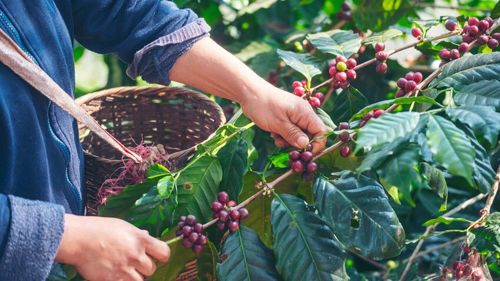
Towards a harmonised standard
COFCO International is already taking action by sourcing coffee certified by schemes including Rainforest Alliance, UTZ and 4C. And some 36% of the company's Brazilian coffee sales were responsibly sourced in 2021, contributing to an increase of 24% in its certified sales volumes compared to 2020. Now, by stepping up its focus on carbon emissions, the company will both make further advances and help support global UN-led ambitions for net zero emissions in agricultural commodity production by 2050 and an end to deforestation by 2030.
However, measuring the carbon footprint of coffee is far from straightforward and will require a robust and consistent approach.
“The international coffee market is one of the most demanding in terms of fulfilling customer needs for certifications,” says Julia Moretti, COFCO International’s Global Head of Sustainability. “However, this creates challenges for producers, who must try to meet multiple requirements with few resources and in the absence of a harmonised and accessible global standard to measure carbon emissions.”
To help bring greater consistency, COFCO International is creating a verification process that encompasses best practice and covers all aspects required by the various certifications, in a practical and cost-effective way. Now, through the pilot project in the Cerrado Mineiro, it will seek to identify a methodology to calculate emissions, in order to help farmers adapt their operations, reduce emissions and lower costs. This will be a holistic process and will go beyond measuring carbon emissions released into the atmosphere – using the company’s own standard – to cover multiple factors including how much carbon is captured in the soil. The company engaged with farmers in the region, encouraging them to take part, and supported participating farms in sharing their challenges and best practice to promote continuous improvement and help improve livelihoods.
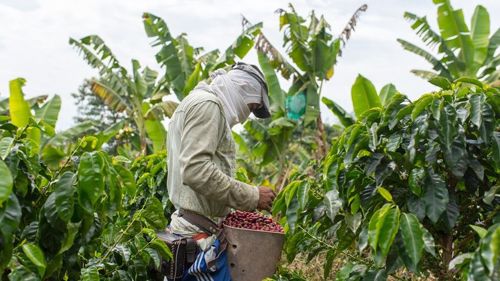
Inside COFCO International’s carbon reduction projects
The partners visited participating farms to understand their social and environmental risks, collecting information and leveraging satellite imaging to check that land was being used legally, such as respecting requirements on protected lands and indigenous people’s rights. They worked closely with farmers to explore the results, analyse opportunities for change and develop action plans.
For example, Produzindo Certo used the UN’s GHG protocol to estimate carbon emissions and sequestration, collecting 171 soil samples for analysis by specialist laboratories in order to calculate GHG emissions. This is a costly yet effective process. They collaborated with six farmers covering 1,319 hectares, finding 75,451 tonnes of carbon stored in the ground, and 12,079 tonnes of carbon emitted annually. Additionally, the team combined the geographical location and ownership of the farms with publicly available information to confirm that none of the farms were experiencing risks connected to issues such as deforestation, modern slavery, land rights and conservation priorities.
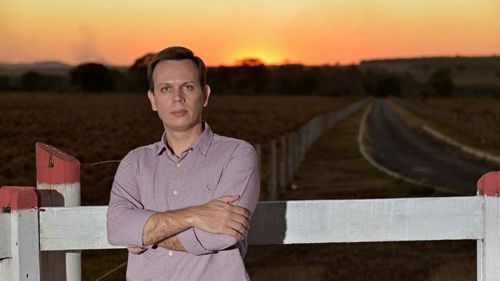
Looking ahead
“Achieving a broad and reliable view of the situation on these farms will enable us to confirm the viability of this approach and assess whether it can be applied on a larger scale”, says Charton Locks, Produzindo Certo’s Chief Operations Officer.
Indeed, once the new model is fully viable and the carbon measurement methodology finalised, COFCO International intends to engage partner coffee growers and cooperatives across Brazil and in Vietnam, Colombia and Indonesia. This will also mean finding incentives for growers, particularly given the cost of soil testing. One possibility could be generating carbon credits through verified carbon offsetting projects, whereby farmers would be able to profit from reducing carbon on their farms through international markets.
Finally, the new methodology will also form part of a broader, upcoming Responsible Sourcing Programme for coffee, building on its existing soy and palm sourcing policies, and will help COFCO International make further strides towards its sustainable sourcing goals and promote good agricultural practices across the coffee sector.
For more information on COFCO International’s work to produce sustainable coffee, please see our Sustainability Report.
